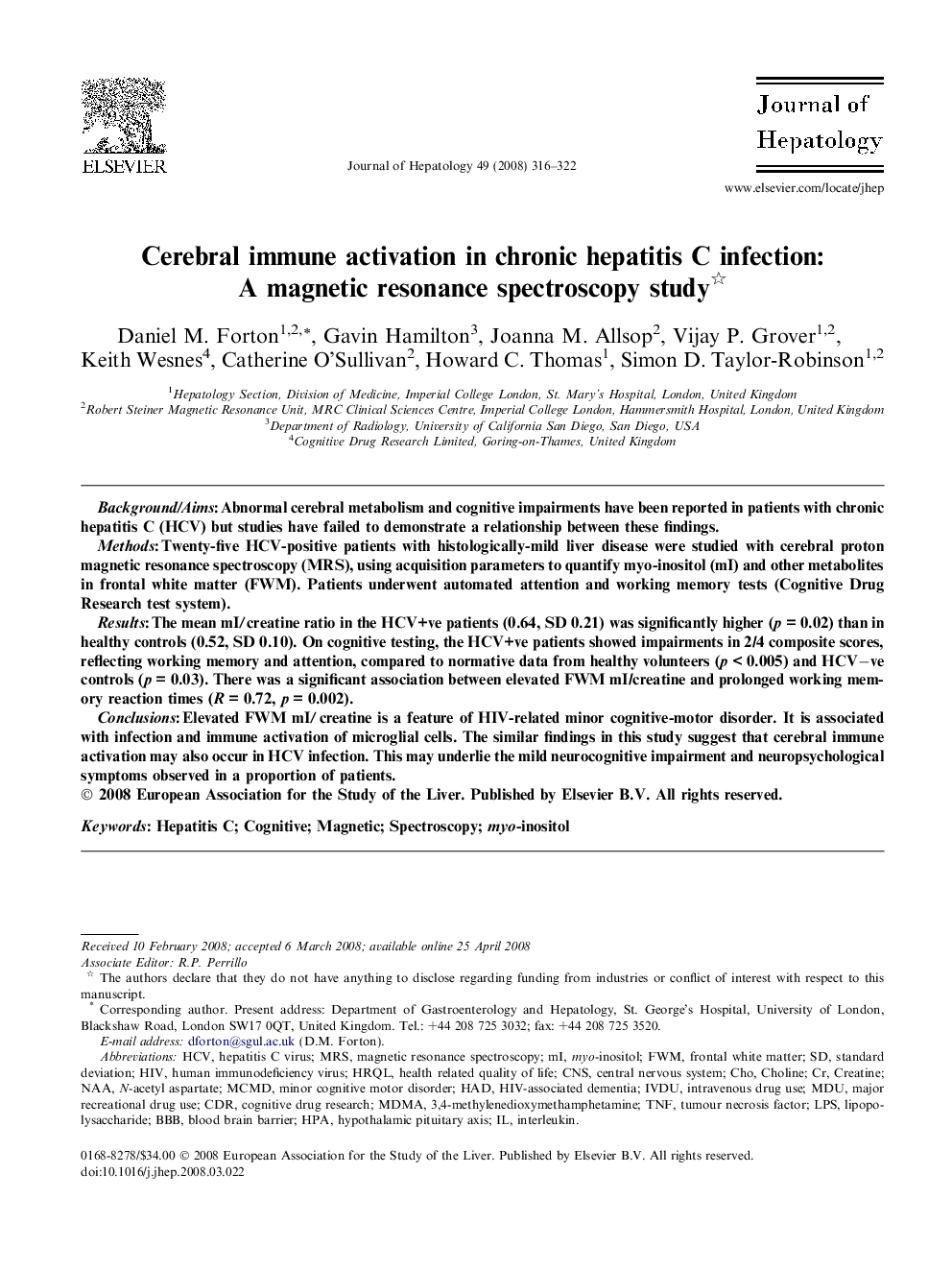| Article ID | Journal | Published Year | Pages | File Type |
|---|---|---|---|---|
| 6108458 | Journal of Hepatology | 2008 | 7 Pages |
Background/AimsAbnormal cerebral metabolism and cognitive impairments have been reported in patients with chronic hepatitis C (HCV) but studies have failed to demonstrate a relationship between these findings.MethodsTwenty-five HCV-positive patients with histologically-mild liver disease were studied with cerebral proton magnetic resonance spectroscopy (MRS), using acquisition parameters to quantify myo-inositol (mI) and other metabolites in frontal white matter (FWM). Patients underwent automated attention and working memory tests (Cognitive Drug Research test system).ResultsThe mean mI/ creatine ratio in the HCV+ve patients (0.64, SD 0.21) was significantly higher (p = 0.02) than in healthy controls (0.52, SD 0.10). On cognitive testing, the HCV+ve patients showed impairments in 2/4 composite scores, reflecting working memory and attention, compared to normative data from healthy volunteers (p < 0.005) and HCVâve controls (p = 0.03). There was a significant association between elevated FWM mI/creatine and prolonged working memory reaction times (R = 0.72, p = 0.002).ConclusionsElevated FWM mI/ creatine is a feature of HIV-related minor cognitive-motor disorder. It is associated with infection and immune activation of microglial cells. The similar findings in this study suggest that cerebral immune activation may also occur in HCV infection. This may underlie the mild neurocognitive impairment and neuropsychological symptoms observed in a proportion of patients.
